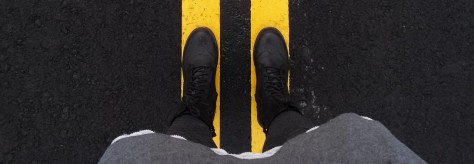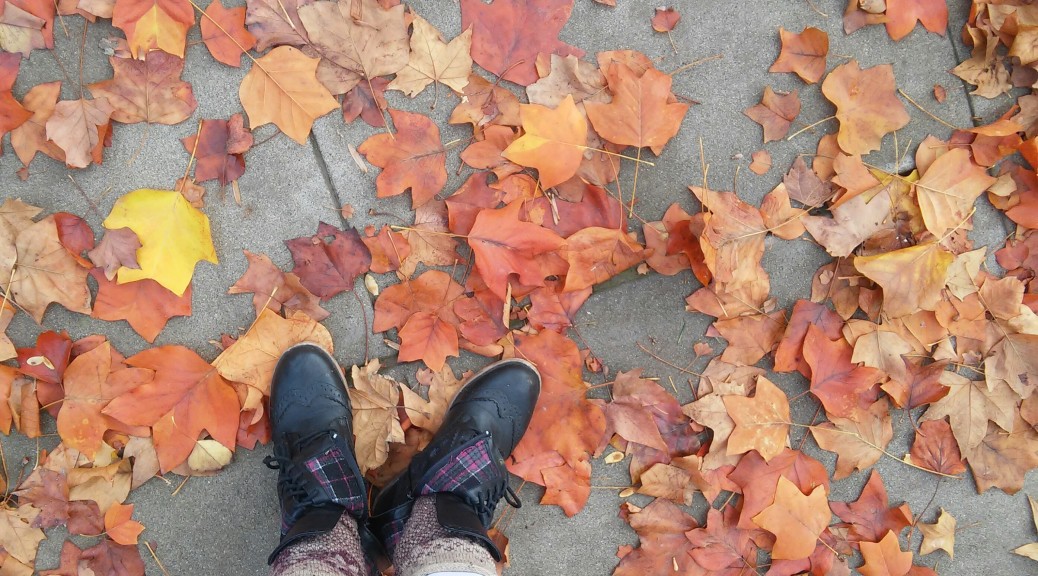Becoming disabled is indescribable, so of course here I am trying to write about it.
I did not simply become disabled and accept it with the snap of the fingers: “Aha, so that explains everything! I’m disabled!”
Let me make the clear distinction between becoming vs being disabled. Becoming disabled is a learning process. Being disabled is what happens after the shock has subsided and one has accepted disability as part of his or her identity. Plenty of people have never “become disabled” because they’ve always been disabled – they have never been any other way. The difference between becoming disabled and being disabled is as simple as broken versus whole. When we finally reach the acceptance stage, we are once again whole, having accepted that disability is part of us now.
There is no timeline to follow after a sudden and shocking diagnosis – other than scheduled doctor appointments, and perhaps the sudden tendency to plan for the unexpected worst so that if things improve there’s a reason to celebrate. Rather than having a reliable and predictable five-year plan, the sidewalk paves itself with each step you take.
It’s definitely not a walk in the park. Becoming disabled is more like walking through the apocalypse. Think broken pavement. Zombies. Car alarms. Birds, big black birds. And whatever else you can think of that you wouldn’t want to round the corner and run into. Clowns. Spiders. Snakes. Balloons. Door to door salespeople. Fear. That’s what I’m talking about. Fear. It’s what threatens to overtake each tentative step forward into the unknown, unpredictable new body you now inhabit. Fear is a powerful substance.
At each crack in the pavement I have an impulse to turn back and run to the body that is rapidly shrinking in the rear-view mirror, but that body was long ago resurrected and replaced with a broken one. I have been removed from my body and inserted into a sickly clone, and I am unsure which one of us is the real zombie. There is indeed a zombie approaching me, but when I turn to run I see that I’m turning from my own reflection in the mirror. I have bags under my weary eyes, my mouth gapes open with the struggle to stand upright, and I stare dully at a body that has learned to simply stumble forward in search of life.
I hurt too much to recreate my whole reality, why can’t I have my old body back? And besides, I’m not going to last long out here with all these hungry zombies.
Enough with the apocalypse. These zombies are really ironic personifications of my fear. Of my reality.
What really happens when someone becomes disabled? What happens is you pick up the pieces from the past and somehow put together a new reality in your mind with – with what?
There’s no crash course in learning how to live in this ‘new’ body, to learn how to say no to commitments that will overtire or hurt you, to learn how to accept – or ask for – help. Most strikingly, there’s no crash course in sorting through the psychological effects of the changes and new burdens that fall into your lap, like all of a sudden realizing that you are a professional patient: 50-75% or more of your time is now spent managing your healthcare. Who DOES that? We do. We the newly disabled. The chronically diseased.
Reality?
There are no crash courses, but we do learn. We learn how misunderstood we are and how hard we have to work to survive.
We learn through the cold stares we get when we park in a handicapped spot and people say we don’t look sick.
We learn when we get a $1,000+ bill in the mail for a doctor visit and realize it falls on us to fix the mistake someone made in the billing department – we have to be our own advocate even if it takes away from our work, family, or social life.
We learn how to persevere despite the groaning size of our medical charts. Many of us are self-taught, but many of us also find support from others who help us when we are lost.
We learn through from others who’ve walked down the same sidewalk and have come back to hold our hands as we learn the terrain.
We learn how to see and approach life tasks differently. We constantly develop strategies to cope with a body that doesn’t feel like our own.
We learn to adapt physically and sort through the psychological bits in no certain order and with no date at which the learning curve ends.
We learn by looking back and we learn by taking it one step at a time. Where the sidewalk ends is left up to us, somewhere in the uncertain future.
And once we accept that this disability is an extension of our identity, we become whole again. 


Life is not a requiem for that which we cannot do, but a celebration of what we can. Thank you Charis for sharing your story, and for moving all those people that kept getting in the way at the Bernie rally. I haven’t been out much since becoming disabled, usually to go to a Dr. appointment, so this particular day was a bit special.
LikeLike
Thank you, Stephen. Huge hugs, friend.
LikeLike
I get through by viewing any good days After Illness as borrowed time. It sounds morbid, but it has helped me develop better acceptance and gratitude. It allowed me to grieve who I was and accept who I am today.
I’ve also called my life post apocalyptic. I was never “healthy” but just about everything about me changed in 2014. I left that year a different person, than the one who came in.
LikeLike
Thanks so much for this piece. I became deaf/blind 11 years ago and had to figure out how to move through life on my own. Now I have a community of support, both able bodied and disabled. It did take me on quite a journey, but I really am stronger than I believed myself to be.
LikeLike
I’m so glad to read your comment. It is incredibly difficult to explain to “healthy” people what it is like to shift your whole reality without a choice. Huge hugs to you.
LikeLike